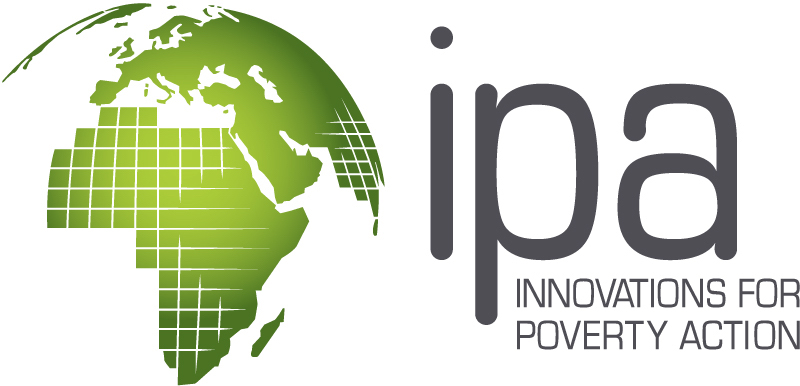|
IPA Consumer Protection Quarterly
Issue No. 8 – January 2023
|
Welcome back to the Consumer Protection Quarterly, IPA's newsletter on the latest consumer protection research across the globe. This newsletter is part of IPA's Consumer Protection Research Initiative. Each quarter we send you the latest research, insights, and inspiration for financial consumer protection. If you have something to share, please reach out: [email protected].
You are receiving this email because of your past participation in IPA consumer protection or financial inclusion events, and/or because you signed up for our consumer protection practitioner's forum mailing interest list. If there are others you think may benefit from this newsletter, please forward. You can manage your email preferences here.
|
|
|
What's New and What's Next
|
New: Funding Opportunities
- DCO Impact Evaluations for Digital Credit | Due by April 28, 2023: This is an open eligibility RFP interested in proposals investigating the impacts of digital credit products, how these impacts vary according to product design features or borrower characteristics, and how products can be improved to better protect and benefit under-served populations.
- DCO Data Privacy in Low- and Middle-Income Countries | Due by April 28, 2023: This is an open eligibility RFP primarily interested in funding technical proposals that investigate how privacy-enhancing technologies (PETs) can be applied to digital services in LMICs. We may also fund compelling theoretical and qualitative proposals that seek to rigorously document and understand concerns regarding data privacy and identify ways to enhance data privacy protections in LMICs.
|
New: IPA Welcomes Its New Director for Consumer Protection
 This month, IPA was pleased to welcome Paul Adams as its new Director for the Consumer Protection Research Initiative. Paul will lead IPA’s efforts in helping researchers, regulators, and policymakers to monitor and understand consumer protection
risks, design effective interventions, and work with regulators to test potential solutions. Paul comes to IPA with a decade of experience working with governments and regulators including the UK Financial Conduct Authority, using research to solve problems related to consumer protection. His breadth of experience adds significant value to the Initiative’s work and expanding research agenda.
|
New: IPA Hosts UN Secretary-General’s Special Advocate Queen Máxima to Meet with Mobile Money Users in Tanzania
 The IPA Tanzania team was honored to host a field visit to Dar es Salaam’s Makumbusho Market during a recent visit to Tanzania by H.M. Queen Máxima of the Netherlands in her capacity as the UN Secretary-General’s Special Advocate for Inclusive Finance for Development (UNSGSA). The goal of UNSGSA Queen Máxima’s visit was to better understand how digital payments are being used in Tanzania, the costs associated with them, and their potential to help small businesses and other users.
In her role as UNSGSA, Queen Máxima spoke with entrepreneurs and mobile money agents at the market to better understand the impacts of mobile money on the growth of their businesses. She was accompanied by Veronica Kakengi, an IPA Tanzania research associate studying the costs of mobile money transactions.
As part of IPA Tanzania’s ongoing work on digital payments, Kakengi and her team organized a visit to a local market so that the UNSGSA could hear directly from mobile money agents and entrepreneurs about the benefits and remaining challenges to using digital payments.
|
|
|
Next: Central Bank of Nigeria Consumer Protection Embedded Lab
In August 2022, IPA and the Central Bank of Nigeria (CBN) launched a Consumer Protection Embedded Lab, the latest in IPA’s Embedded Labs Program for policymakers–and the first of its kind focusing solely on consumer protection. The Lab will evaluate CBN’s current consumer protection and financial education data usage and evidence generation and offer suggestions to expand their monitoring evaluation and learning frameworks. IPA is excited to begin this partnership and looks forward to future collaborations with financial sector regulators.
|
|
Things that Make Us Think
|
A few links to recent research that are sparking excitement on our team:
- More fuel for the financial literacy debate. For anyone who has spent five minutes following the debates around financial literacy, you know it’s a surefire way to get people talking (or in many cases arguing). Angela Lyons and Josephine Kass-Hanna provide some guidance on digital financial literacy definitions. Perhaps a bit more controversially, Kaiser, Lusardi, Menkhoff, and Urban have offered a new meta-analysis of financial literacy interventions, which states,
“evidence shows that financial education programs have, on average, positive causal treatment effects on financial knowledge and downstream financial behaviors.” Previous meta-analyses have called into question the impact of financial literacy interventions, so it will be interesting to see how this next round of debate unfolds. Maybe it’s time for another financial literacy impact webinar?
- What’s going on in FinTok (don’t worry, I had to Google “FinTok” too)? If you read this newsletter, you know we are big fans of social media research. So we are quite excited to see a new frontier in social media and consumer protection: FinTok–or financial content on TikTok. Aggarwal, Kaye, and Odinet conducted a content analysis of FinTok discussions regarding buy now, pay later products in the US and UK. The analysis finds, “tentative evidence of payment difficulties and strategic default [among TikTok commenters] in the buy now, pay later credit market, with attendant consumer protection risks.” We hope this is just the beginning of an
exploration of FinTok content, and look forward to integrating this with IPA and others’ current research on other social media channels.
|
Did you receive this newsletter from someone else and don’t want to miss out on the next one? Sign up to be part of our Consumer Protection Practitioner’s Network.
If you’d prefer to not receive these Consumer Protection Quarterly emails in the future, you can manage your email preferences or unsubscribe here.
|
|



 The COVID-19 pandemic
The COVID-19 pandemic